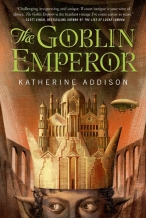So, I finally finished the latest round of tinkering with my long-standing work-in-progress, The Winter Warrior. This is the book that I intended to publish several years ago, have done a ‘final edit’ on more times than I can count, have written two other books in the meantime, and keep having new ideas about on an almost daily basis. Hence calling it ‘tinkering’ rather than ‘editing’ at this point, as if I know I’ll never finish it. However, there is cause for optimism.
First, I have sent it out to some lovely beta readers. I have done this before, several times, and it’s been productive but also frustrating. Some of the frustration is that you just want them to tell you that it’s the best book ever and it should be published immediately, as-is, which they are never going to do. The more reasonable frustration is the fact that every reader is going to read your book differently, and therefore you never know how useful their reaction is going to be.
I got some comments last time that we really helpful and made me think pretty hard about some aspects of the story. In the end, I didn’t go with all the suggestions or address all of the comments, but I did make some pretty big changes. I also put it down for a while, then came back and did a re-appraisal that ended up scrapping the whole beginning of the book in favour of (another) new opening. Most of this was my own reaction, but I did have some of that beta reader critique in the back of my mind.
Now that I’ve sent it out to new readers, unaware of the previous opening, I’ll be especially interested to hear if it works. If it doesn’t, I’m not sure where I’ll go!

The other cause for optimism is that I’ve set myself a deadline, coincidental with an external event (which means I can’t arbitrarily change it) – but I’m not telling when (which means I still can). What I do with the book at that deadline depends, again, on the beta readers. I’m still torn between the various routes to publication, and I may even have to consider the nuclear option of just setting it down – maybe for good – and finally getting to work on these other stories that need editing.
Seriously, one thing they don’t tell you about writing is that writing is the easy part, and the quickest part. At least, that’s what it’s been for me. After all this editing, I long for the opportunity to just write a book again. With three whole books written but still not finished, I don’t know when that will be. I have to start getting things out the door just for closure, or pretty soon I’m going to have ten unpublished novels lying around and nothing to show for it.
For now, it’s just me and the beta readers.

